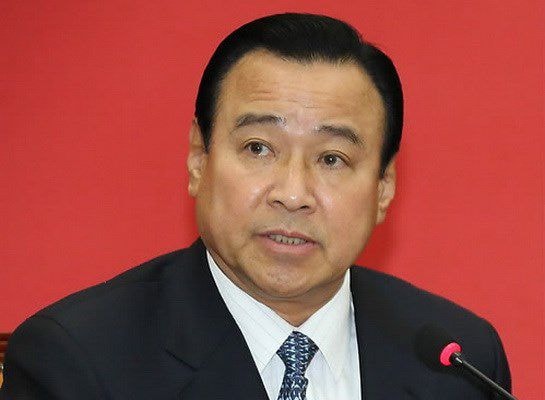About South Korea's newly nominated Prime Minister Lee Wan-koo
On January 23, South Korean President Park Geun-hye nominated ruling Saenuri Party leader Lee Wan-koo to the National Assembly as the country's new Prime Minister to replace Chung Hong-won, who submitted his resignation after the ferry sinking in April 2014 that left more than 300 people dead or missing.
On January 23, South Korean President Park Geun-hye nominated ruling Saenuri Party leader Lee Wan-koo to the National Assembly as the country's new Prime Minister to replace Chung Hong-won, who submitted his resignation after the ferry sinking in April 2014 that left more than 300 people dead or missing.
At a press conference on the same day, Mr. Yoon Doo-hyun, Senior Press Secretary of the President of the Republic of Korea, said: "President Park nominated Mr. Lee Wan-koo based on his deep understanding of the president's philosophy in running state affairs and contributing to maintaining the normal operation of the National Assembly by cooperating with opposition parties."
| RELATED NEWS |
|---|
 |
| Mr. Lee Wan-koo, who was recently nominated as Prime Minister by South Korean President Park Geun-hye. (Photo: Yonhap) |
Speaking to the press immediately after being nominated, Mr. Lee Wan-koo said that if he becomes Prime Minister of South Korea, he will focus his efforts on reviving the economy, increasing communication with politicians and the public as well as giving "frank" advice to the President on state affairs.
South Korean politicians have initially expressed their support for Lee Wan-koo. The ruling New World Party considers Lee to be a capable leader who can bring harmony within the party and hopes that he will fulfill his new role in governing the country, connecting the government and the ruling party, and establishing civil service discipline in accordance with the people's wishes.
Meanwhile, the opposition New Politics Alliance for Democracy (NPAD) party also expressed hope that Prime Minister candidate Lee Wan-koo will usher in a period of governing the country through dialogue and understanding.
According to the Korean Constitution, the Prime Minister position must be approved by the National Assembly and in the meantime, Mr. Chung Hong-won will continue to serve as Prime Minister of Korea. However, analysts say that with the support of both parties and the ruling party currently holding a majority in the National Assembly, Mr. Lee Wan-koo is likely to be approved by the National Assembly soon.
Ong Lee Wan-koo, 64 years old, is known as a prominent politician in the Chungcheong region, central Korea, with extensive experience in politics, economics and local government administration.
In late 2009, he resigned as Mayor of South Chungcheong Province to express strong opposition to former South Korean President Lee Myong-bak's plan to move South Korea's administrative capital from Seoul to what is now the administrative city of Sejong.
Many political analysts believe that the decision helped him become the top politician in the Chungcheong region and win the trust of President Park Geun-hye, who also opposed the plan of former President Lee Myong-bak.
After passing the civil service exams in 1974, Lee Wan-koo worked at the Ministry of Finance. Shortly after, he transferred to become the youngest police chief in Korea at the age of 31.
During his career, Mr. Lee worked abroad for 7 years, including at the Korean Consulate in Los Angeles, USA.
Lee Wan-koo, a three-term South Korean lawmaker, won 80 percent of the vote in the most recent by-election in April 2013 after a fierce battle with cancer.
During his seven months as leader of the ruling Saenuri Party in South Korea's parliament, Lee conducted difficult negotiations with the opposition NPAD party over a controversial bill aimed at clarifying the truth behind the Sewol ferry sinking.
Many analysts also believe that if he receives parliamentary approval to become Prime Minister of South Korea, he will most likely become a potential candidate of the ruling party in the presidential election at the end of 2017./.
According to VNA






